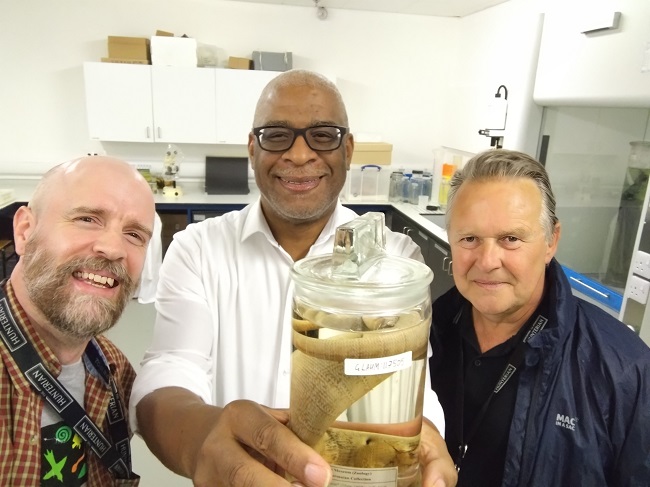Inspirational students reach nursing awards finals
| Three inspirational students from the University of Wolverhampton have been shortlisted for leading nursing awards.
The trainee nurses have all reached the finals of the prestigious Student Nursing Times Awards 2019. Third year BNurs (Hons) Mental Health Nursing student Andrew Rogers, 55, from Walsall, is a finalist in the outstanding contribution to student affairs category. Ian Unitt has reached the finals of the Student of the Year: Learning Disabilities category. Ian, 45, from Cradley Heath, is a third year BNurs(Hons) Learning Disability Nursing student. Meanwhile, Rachel Ashworth has been shortlisted in the Student of the Year: Children category. The 54-year-old from Telford is studying for a BNurs (Hons) in Children’s Nursing. Sharon Arkell, Director of the University’s Institute of Health, said: “We are thrilled that three of our inspirational nursing students have been shortlisted in the Student Nursing Times Awards 2019. This is wonderful recognition of their commitment, passion and hard work and we are confident that all three will make a significant contribution to their fields of nursing when they graduate.” Andrew Rogers carries out various roles including being a student nurse representative for Men in Nursing Together, a Royal College of Nursing (RCN) Student Information Officer and writing poetry. He is currently in the process of setting up a support group for nursing students with dyslexia as well as signposting others including patients to further support. He has also overcome several obstacles to follow his dream of becoming a nurse, including being diagnosed with dyslexia later in life. Andrew said: “My journey into nursing has been life-changing, giving me confidence, hope and belief. Words cannot convey how proud I feel to be a nurse and to have been recognised and shortlisted for this amazing award.” Ian was one of 150 healthcare students nationwide selected to be part of the Student Leadership Programme offered by the Council of Deans for Health, as well as being a student editor for the Student Nursing Times representing the learning disability field, an intern for @WeLDNurses, an RCN Student Information Officer for the West Midlands region and an area lead for the Men In Nursing Together (MINT) campaign. He added: “I was very surprised when I found out I had been nominated, and absolutely amazed when I found out I had been shortlisted. Having looked through the other nominees I feel very honoured to have been included, and I am extremely grateful for all of the support I have received from my University, my lecturers, my peers and the many fantastic mentors that I have accumulated throughout my journey.” Rachel Ashworth has just completed her degree at the Walsall Campus and has secured a role on the Children’s Ward at The Royal Wolverhampton Trust, New Cross Hospital. Prior to studying nursing, she was a Higher Level Teaching Assistant and completed a Makaton course in order to improve her communication skills in relation to children. She said: “I had absolutely no idea that I had been nominated for the award until I received a call from one of the Senior Lecturers. I was shocked and overwhelmed with tears as it came as a total surprise and I feel very humbled that I was chosen to represent my field of Children’s Nursing. “My three year journey has been challenging for many reasons but I persevered and being shortlisted for this award is the ‘icing on the cake’. I already feel like a winner having achieved so much but we will see what happens on the night. I cannot thank everyone enough for giving me this amazing opportunity.” The Student Nursing Times Awards 2019 ceremony takes place on Friday April 26 at the Grosvenor House Hotel, London. |

















